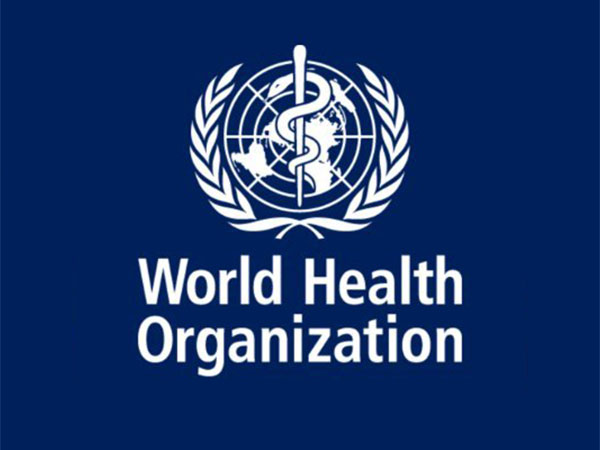WHO calls on member countries to eliminate illicit trade in Tobacco, control unrecorded alcohol
The World Health Organisation has called on the member nations in the Southeast Asia region to recognise that alcohol and tobacco in any form, whether legal or illicit, are harmful to one's health, and thus decisive actions must be taken to stop the illicit trade in tobacco products and to track down and eradicate unreported alcohol consumption.

- Country:
- Thailand
The World Health Organisation has called on the member nations in the Southeast Asia region to recognise that alcohol and tobacco in any form, whether legal or illicit, are harmful to one's health, and thus decisive actions must be taken to stop the illicit trade in tobacco products and to track down and eradicate unreported alcohol consumption. As of now, the WHO South-East Asia Region, India and Sri Lanka are parties to the WHO FCTC Protocol to Eliminate Illicit Trade in Tobacco Products.
"Effective control of illicit tobacco trade and unrecorded alcohol is a challenging and daunting task, but now is the time to prudently make our decisions and choose the best way forward. As a first step, all our remaining Member States should become Parties to the WHO FCTC Protocol to Eliminate Illicit Trade in Tobacco Products," Regional Director Saima Wazed urged in her opening remarks at a regional workshop here to address the challenges of illicit tobacco trade and unrecorded alcohol. Wazed further called on Member countries to devote optimal resources to developing, implementing and sustaining effective 'track and trace' mechanisms for tobacco products.
"It is essential to compile existing, and generate new, regional evidence to enable policymakers make better-informed and more effective policy decisions to monitor and combat illicit tobacco trade and unrecorded alcohol," Wazed said. She stated that numerous nations' experiences demonstrate that combating the illicit trade is possible even with increased tobacco taxes and prices. As a result, tax revenues rise and tobacco consumption falls at the same time.
An estimated 25 per cent of global alcohol consumption is unrecorded. This is usually of a lower price and appeals to consumers of low socioeconomic status and people with underlying alcohol use disorders. It is often irregularly labelled, thus often containing unknown ethanol percentage and potentially toxic compounds. It is a complex interplay of these factors that makes unrecorded alcohol potentially more harmful than regulated alcohol, the Regional Director said, according to an official WHO release. Unrecorded alcohol consumption is associated with disproportionate harm that goes beyond toxicity. The online sale of unrecorded alcohol, which circumvents alcohol availability regulations, is an emerging challenge, she said.
Over 20 distinct types of cancer, respiratory and cardiovascular disorders, as well as numerous other crippling medical conditions, are all significantly increased by tobacco use, the release mentioned. Overindulgence in alcohol consumption has a number of detrimental effects on health. It increases the chance of developing mental illnesses, both contagious and noncontagious diseases, early mortality, accidents, and domestic abuse.
As of 2022, the WHO South-East Asia Region has the highest average tobacco use prevalence among adults. The region accounts for 280 million smokeless tobacco users, nearly 77 per cent of the global total, and 11 million adolescent tobacco users, 30 per cent of the global total. This is despite the progress recorded in the fifth edition of the WHO global report on trends in prevalence of tobacco use 2000-2030, which shows that between 2000 to 2022, in the WHO South-East Asia Region, tobacco use prevalence among adult men decreased from 68.9 per cent to 43.7 per cent and among adult women from 33.5 per cent to 9.4 per cent, the release added. "We need to further prioritise effective implementation of all WHO Framework Convention on Tobacco Control (FCTC) measures at the country-level. This must be done to address both supply-side and demand-side issues in relation to all forms of tobacco use, to ensure a reduction in the prevalence of tobacco consumption across our region," the Regional Director said. (ANI)
(This story has not been edited by Devdiscourse staff and is auto-generated from a syndicated feed.)
- READ MORE ON:
- alcohol
- tobacco
- illicit trade
- health
- WHO
- FCTC
- Southeast Asia
- smuggling
- taxation
- regulation
ALSO READ
"All prisoners, children, civilians who were unlawfully detained must be returned to Ukraine": Zelenskyy
Cellecor Gadgets Limited expands its overseas operations by incorporating a new Wholly Owned Subsidiary in Hong Kong
Home Minister Amit Shah directs strict legal action against those who indulge in violence in Manipur.
Thailand Pioneers Marriage Equality in Southeast Asia
Thailand passes landmark bill, to become first country in Southeast Asia to recognise same-sex marriage










